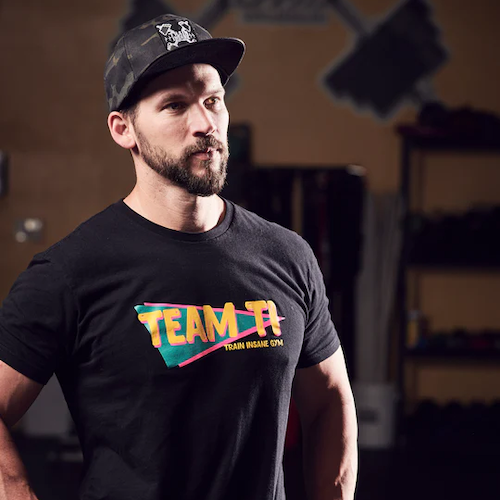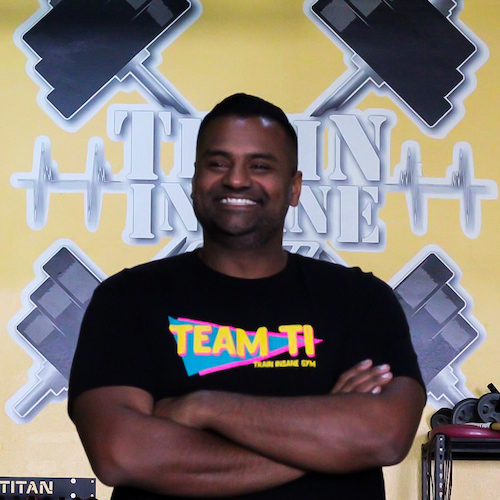Anaheim's Premier Fitness and Strength Destination
Lose Weight Get Stronger Gain Confidence Get Results
Ignite Your Fitness Journey at Train Insane Gym in Anaheim, California
Our Fitness Programs
Train Insane Gym will help you reach your goals
Small Group Personal Training
Reach your fitness goals with Small Group Personal Training at Train Insane Gym.
Our experienced trainers in Anaheim, CA, provide personalized coaching and effective workouts.
Join us to push your limits in a motivating group setting.
Learn more and start your transformation today!
Youth Sports Performance Training
Unlock your child’s athletic potential with Youth Sports Performance Training at Train Insane Gym.
Our experienced coaches provide age-appropriate exercises and skill development, helping your child build strength, agility, and confidence.
Nutrition Coaching
Achieve your nutrition goals with our personalized Nutrition Coaching program.
Say goodbye to fad diets and starvation, and hello to sustainable lifestyle changes.
Our expert coaches in Anaheim, CA, will guide you every step of the way, from setting up your personalized nutrition plan to overcoming challenges.
Online Fitness Coaching
Elevate your fitness journey with our Online Fitness Coaching program.
No matter where you are, our experienced coaches will provide personalized guidance and support to help you achieve your fitness goals.
From tailored workout programs to nutrition coaching, we’ve got you covered. Join our online community and take the first step towards a healthier, fitter you.
Why Us:
- You'll always have a coach.
- 100% customized 1 on 1 training program.
- No contracts, cancel anytime.
Forge a Stronger You:
Embrace Health, Strength, and Fitness in Anaheim
At Train Insane Gym, we’re passionate about helping individuals transform their lives through fitness.
Our premier fitness destination in Anaheim, California, is where you can embark on a journey of self-discovery, growth, and accomplishment.
With our experienced team of coaches, we provide personalized training programs tailored to your unique needs and goals. Whether you’re aiming to lose weight, build strength, improve athletic performance, or enhance overall well-being, our comprehensive approach ensures you have the tools and support to succeed.
Train Insane Gym is more than just a place to work out. It’s a judgment-free community that fosters camaraderie and celebrates each milestone on your fitness journey. Step into a world of passion, commitment, and extraordinary transformations.
Join us and discover what you’re truly capable of. Unleash your potential and train insane with us.
Meet Our Staff
COACH GEOFF
Owner

Geoff was born and raised in Anaheim, and spent most of his youth playing sports. It wasn't until he finished playing college football and became a personal trainer that he discovered his true passion for helping people reach their goals. After getting his start at 24 Hour Fitness, he felt like he could do a better job with his own program, and decided to open Train Insane in 2010.
Coach Ana
Level 2

COACH MIKE
Level 1

Coach Kendall
Level 1

Merrill
Membership Coordinator

